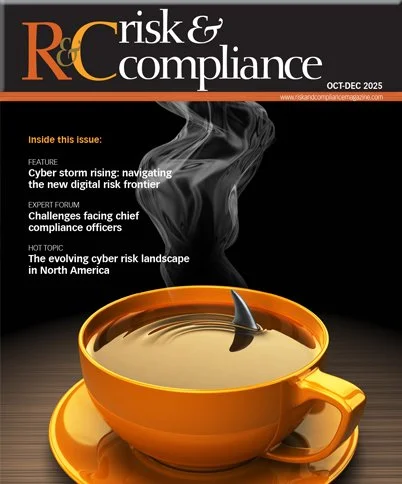CHALLENGES FACING CHIEF COMPLIANCE OFFICERS
R&C: Could you provide an overview of the importance of the chief compliance officer (CCO) role? How has it evolved, and where should it rank in the corporate hierarchy?
Moosmayer: The role of the chief compliance officer (CCO) has evolved unlike any other leadership role in corporations. Twenty years ago, most CCOs focused on legal compliance, especially anti-bribery and sometimes antitrust. During recent years, data privacy, trade sanctions, anti-money laundering, human rights and third-party compliance have often been allocated to the responsibilities of the CCO. And this evolution continues with the need to find a balanced compliance framework for the use of artificial intelligence (AI) in companies. Many CCOs are now overseeing and managing the most relevant assurance topics in their companies. This responsibility requires the development of new skills. The traditional CCO was often a legal expert on policies. The CCO of today needs to be a true risk leader who understands complex regulatory requirements and can communicate with confidence toward employees, the board, regulators and other external stakeholders. If a CCO lives up to this expectation, he or she should be part of the executive management of the corporation.
Henz: The world of work has transformed, driven, for example, by automation, the rise of digital natives in the workforce, collective experience of the pandemic and changed international regulations like the Foreign Corrupt Practices Act (FCPA). As social skills have shifted and ‘synthetic employees’ now handle tasks once performed by humans, the role of the COO has evolved. Today, it is not just about leveraging technology but also navigating the ethical and legal risks that come with AI.

